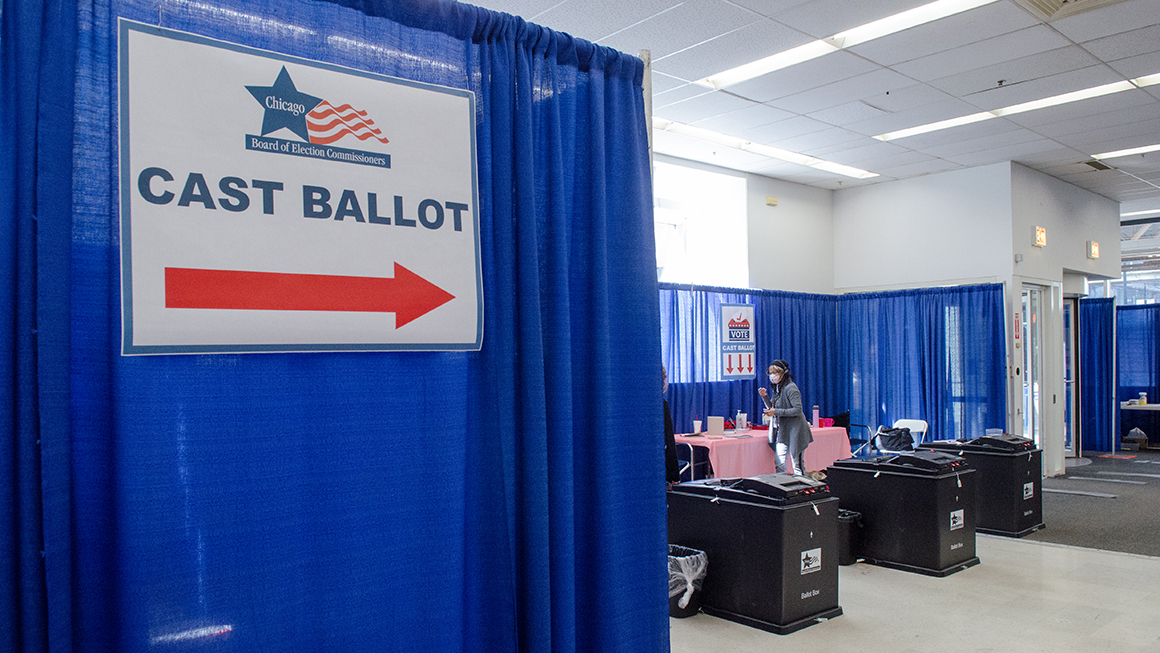
We’re in the final days of a contentious election season, and voters across the country are hungry to improve their economic well-being. According to a recent Gallup poll, 43 percent of Americans identified the economy as the most important issue in the country, and economic confidence and assessment of availability of quality jobs remain low.
Despite a highly polarized federal landscape, voters across the country have an opportunity to make progress on Election Day through state ballot measures that could support workers and boost the economy.
Voters aren’t starting from scratch: In a similar wave of midterm ballot measures, worker-friendly policies received overwhelming support from the electorate across a diverse range of states. Here are the key policies on the ballot this November that affect workers.
Minimum wage
Where it’s on the ballot: Alaska, California, Missouri
A robust body of evidence shows minimum wage increases lead directly to the economic advancement of workers. Our Urban Institute colleagues estimate a national $15 per hour minimum wage could translate into an average earnings increase of $5,000 per year and 6.9 million people being lifted out of poverty. Increasing the minimum wage can also benefit the economy by spurring economic growth and reducing the amount of money required to fund safety net programs.
Tipped minimum wage
Where it’s on the ballot: Arizona, Massachusetts
The federal minimum wage for tipped workers is $2.13, where it’s been frozen for a quarter century. Voters in Massachusetts will have the opportunity to join a growing group of states that have abolished the tipped minimum wage. Evidence shows this is good for workers: states without subminimum wages for tipped workers have poverty rates that are more than 7 percentage points lower (11.1 percent as compared with 18.7 percent) for waitstaff, bartenders, and others in the restaurant industry as compared with states with the tipped minimum.
The likely impacts of Arizona’s measure to adjust tipped wages on workers’ take-home pay are less clear because of its unusual design. The proposal decreases the subminimum wage for tipped workers but requires employers to ensure tipped workers’ take-home wages are no less than $2 over the standard minimum wage if their tips haven’t already surpassed that level. Because of the ambiguity of the policy, it may not have the positive effects of the elimination of subminimum tipped wages. A single minimum wage can prevent wage theft and the mitigate the effects of racial bias in customer tipping practices.
Paid leave
Where it’s on the ballot: Alaska, Missouri, Nebraska
The United States is one of the only wealthy nations with no national paid leave laws, which means access to paid time off remains highly uneven across the nation. Voters in Alaska, Missouri, and Nebraska are considering ballot measures that require employers to provide earned paid sick time to workers. If passed, they will join 18 states and Washington, DC, which have enacted similar policies.
Research shows that access to earned paid sick leave boosts earnings and employment stability, especially for mothers and those working for low wages. Paid sick leave requirements are a win-win for workers and employers, as they increase worker productivity and boost firm profitability.
Collective bargaining
Where it’s on the ballot: Massachusetts
Worker voice (PDF) and power, another central element of job quality, shows up on state ballots in the form of measures asking voters whether, how, and who should have the right to collectively bargain. Evidence shows that collective bargaining benefits those represented directly in negotiations, along with other local workers—and employers.
The vote in Massachusetts focuses on whether drivers who rely on tech-enabled platforms (e.g., Lyft, Uber) can unionize. For workers in the gig economy, these and other worker protections are likely to be especially important to the growing number of workers employed in nontraditional work arrangements because of poor job quality (including earnings, benefits access, and job satisfaction) among gig workers.
Reproductive rights
Where it’s on the ballot: Arizona, Colorado, Florida, Maryland, Missouri, Montana, Nebraska, Nevada, New York, South Dakota
The evidence is clear that reproductive choice is a driving force for women’s economic security, especially for Black women. Studies show abortion access increases women’s long-term earnings, employment and labor force attachment, and educational and workforce advancement. Reproductive rights are on 10 state ballots, in the form of either expanding or establishing a fundamental right to abortion or rejecting measures to limit that right. Voters can continue to protect a woman’s right to make her own choices about her body, and that freedom of choice will support her financial security.
When worker-focused measures appear on ballots, whether in blue, red, or purple states, they tend to win. These victories should signal to federal legislators that voters are willing to use their collective voice to ensure their work is valued.
Ultimately, states can’t do this work on their own. Federal policy reforms that follow the states’ leads would eliminate a patchwork of state policies, create administrative inefficiencies, avoid overly complex regulatory environments for both workers and employers, and mitigate inequities across state lines.
But in the shadow of federal gridlock stalling national labor standards and policies, states are what Justice Louis Brandeis called America’s “laboratories of democracy.” So far, the results of those experiments have shown great promise for how democracy can drive positive outcomes for workers.
Let’s build a future where everyone, everywhere has the opportunity and power to thrive
Urban is more determined than ever to partner with changemakers to unlock opportunities that give people across the country a fair shot at reaching their fullest potential. Invest in Urban to power this type of work.